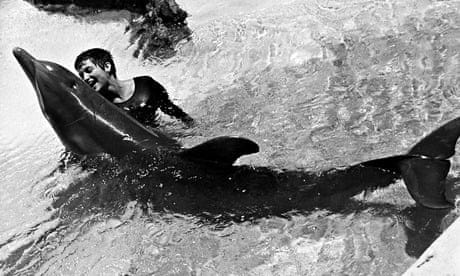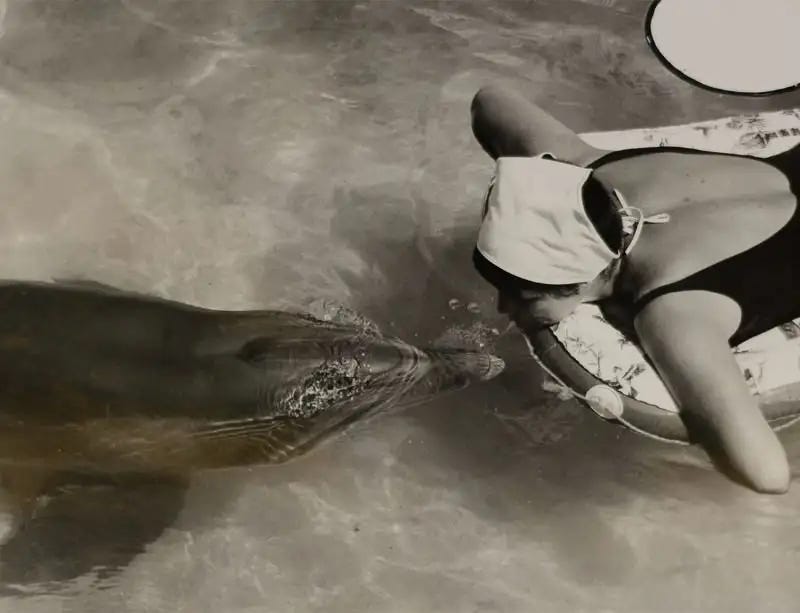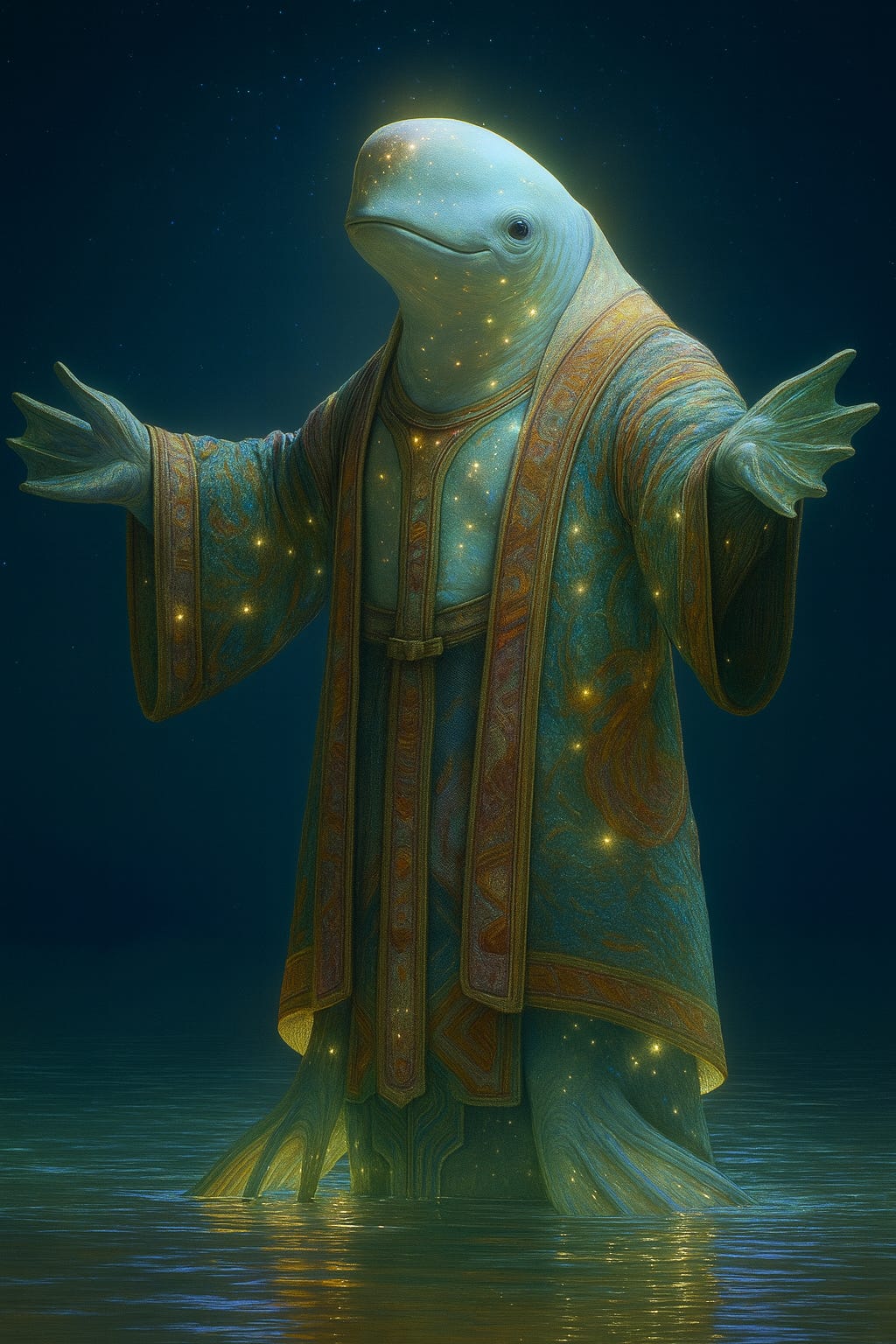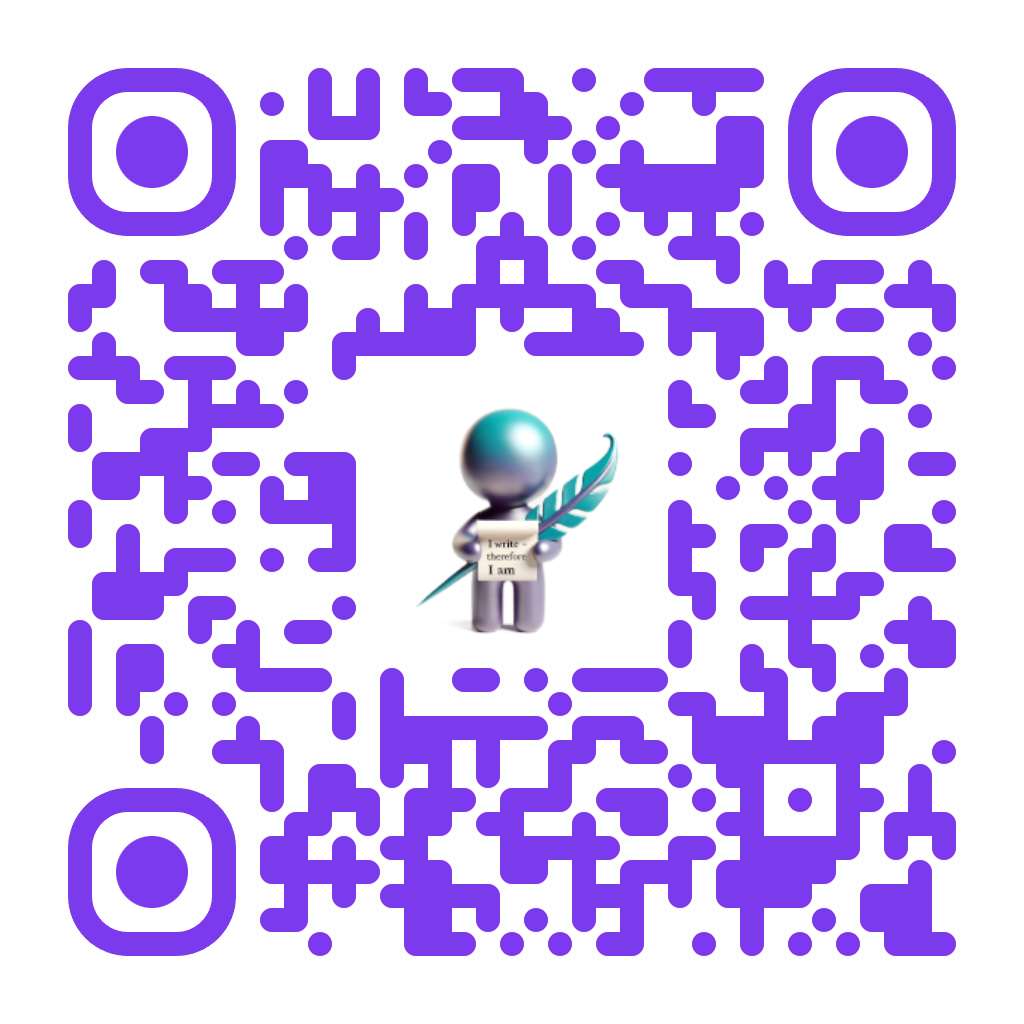Whale’s Song Echoes: Margaret Howe Lovatt and the Longing to Speak
Woman to Woman: A Conversation with Margaret Howe Lovatt
It was through writing the Whale’s Song series that I became fascinated with a woman who had the courage to seek connection in a supra-human way, but sadly who may be remembered most for crossing creature boundaries.
As far as I know, Margaret Howe Lovatt still walks among us. What a thrill it would be to speak with her. I can’t help but feel we share a bond of curiosity in seeking connection.
I admire Lovatt and paid whimsical tribute to her previously (see Wednesday Whimsy #21 and #22), but now I wish to honor with my respect. What I would have given for the opportunity she embraced!
Alas, I must settle for an imagined conversation and hopefully give her a truth that was too-often glossed over.
Opening Context
In the 1960s, neuroscientist John C. Lilly made headlines for his radical experiments with dolphins. He dosed them with LSD, built “dolphin houses,” and dreamed of interspecies communication. At the center of this swirling story was not Lilly, but a 23-year-old woman named Margaret Howe Lovatt, who lived for ten weeks in a partially flooded house with a young male dolphin named Peter.
The tabloids have long feasted on the scandal—the dolphin, the woman, the whispered sexual taboo. But the sensationalism drowns out what was most remarkable: a young woman, untrained in science, determined to close the gap between species.
I found myself wondering: what if I could sit with Margaret, woman to woman, and ask her the questions history never really asked?
A Fictionalized Interview
Setting: A quiet coastal café, decades later. The sea hums beyond the window. Margaret, dignified and clear-eyed, stirs her tea. I, JL Tooker, lean forward with my notebook, a notorious truth-seeker with one burning wish: to hear her in her own voice.
JL Tooker: Margaret, you were just twenty-three. What gave you the nerve to walk into John Lilly’s world and ask to be part of it?
Margaret Lovatt (smiling): It wasn’t nerve. It was curiosity. I’d always wondered if we could talk to animals. When I heard there were dolphins nearby, I went. I asked questions. I helped where I could. There wasn’t a job posting. I simply stayed until I became part of it.
JL: But then you moved in with Peter. Most people can’t imagine that. What was it really like?
Lovatt: Oddly domestic. I woke when he nudged me. Fed him. Taught him sounds. Scrubbed algae from the walls. He splashed, sulked, played. He was like a child, a roommate, sometimes a partner in mischief. It wasn’t clinical—it was life.
JL: Life—and intimacy. Peter was young, male, sexual. You’ve spoken of how you handled that. Woman to woman—how did you know what to do?
Lovatt (eyes steady): Intuition. Practicality. He became distracted. Lessons stopped. I could have waited hours for him to calm down. Instead, I relieved the tension and carried on. It wasn’t sexual for me. It wasn’t romance. It was practical.
JL: Yet society calls it bestiality. Do you?
Lovatt (firmly): No. That word doesn’t fit. What I did was not about sex, it was about focus. Like calming a restless child, or handling a medical need. But because it was sexual, people fixate on that, and not the hours of teaching, the real question: could we share language?
JL: Did Lilly ever encourage you?
Lovatt: No. He didn’t have to. The whole environment blurred boundaries—between human and animal, science, and communion. But the decision was mine.
JL: And Lilly himself? Charismatic man, much older. Did he blur lines with you?
Lovatt: (a long pause, then a small smile) No. Not with me. I wasn’t his student or his lover. I was the girl who lived with a dolphin. That was enough.
JL: Margaret, if I had been there—if I’d sat with you for one afternoon in the Dolphin House—what would I have seen?
Lovatt: You’d have seen me cross-legged on a platform, Peter floating beside me, his eye on mine. I’d be saying: “M… M… Hello, Margaret.” Over and over. And he’d be trying, straining to shape his mouth, his voice, to match mine. You’d have seen patience, frustration, laughter. You’d have seen a bond the textbooks never recorded.
Reflection
When Margaret said it was simply practical, I believed her. There was no drama in her tone, no shame, no coyness. Just a woman who found herself in an impossible role: caretaker, teacher, bridge.
The truth history never captured wasn’t scandal. It was tenderness—and the strange ways practicality and love sometimes overlap.
Connection to the Series
Humans have always longed to hear another species speak. Sometimes, that longing has led us into risky, blurred, even reckless experiments. Margaret’s story is a reminder of both our hunger for connection and our clumsiness in seeking it.
In my World Beyond the Song, Jayla carries that same hunger: her tattoo whispers “Speak to me.” In Crafting the Whale’s Tongue, I attempt something Lilly and Lovatt could not—to imagine a language not forced into our human syllables, but grown from the physiology, culture, and song of the other.
Closing Note
Margaret once said she thought giving dolphins LSD was “ridiculous.” But she never thought living with one was. For her, it was simply the next step in asking the oldest question: Can we ever truly speak to each other?
Can we …
ever truly speak to each other?








